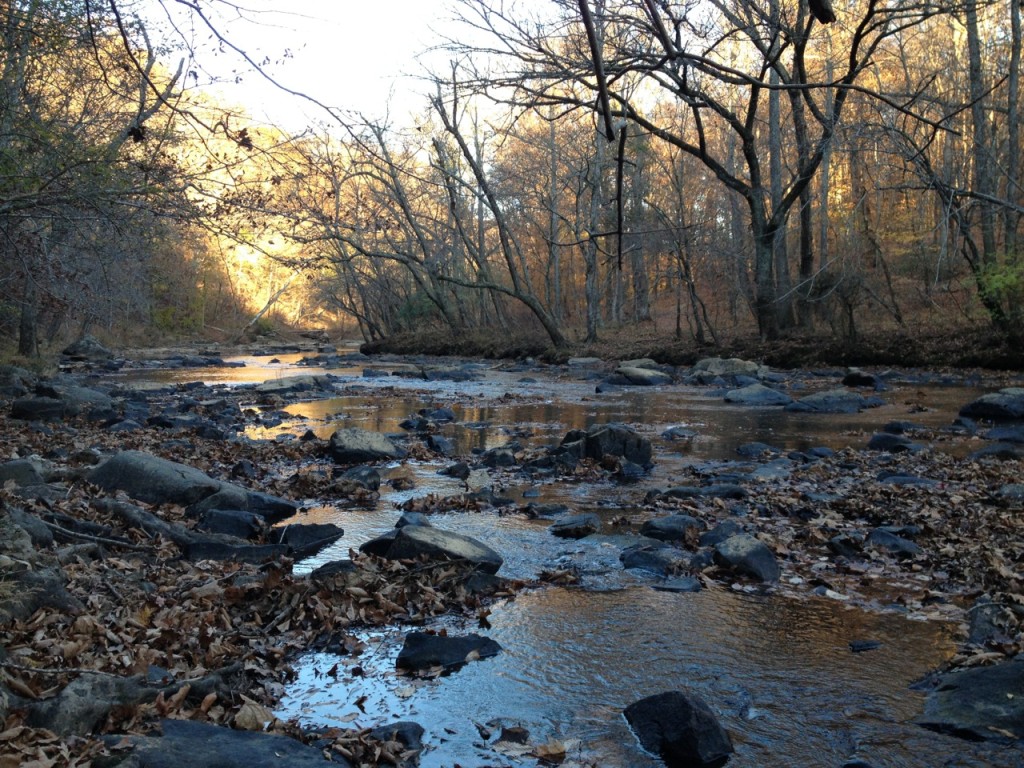In December the sun rises through a copse of trees I can see through my front windows where I sit for morning prayer. Eleven months of the year I see the day dawn only indirectly, as the sun appears nearer due east or northward behind houses or thick pines, or not at all, in the height of summer when the sun is up long before I am. But at the failing of the year the trees stand bare and thin, invisible in the night until the sky lightens behind them, pale at first then golden, the silhouetted branches growing imperceptibly starker until they stretch strong and firm to greet the day. In their naked frailty, unable to block the light, they let it shine through and are strengthened by it. At the failing of the year the dawn is framed for me thus by my window, a promise: The light will ever return, if only we let it.
The river slips softly / into the dusk of the year

Looking eastward down the Eno River, somewhere along Holden Mill Trail, about four-thirty in the afternoon in early November.
On certain autumn afternoons there is a brief passage — if you are lucky you may get ten minutes to appreciate it — when the sun has drifted low and the afternoon breeze has calmed and the light reflects off the surface of the river as from a mirror, doubling the trees and the intensity of their lingering color, and the earth gives the illusion of brightness. The season and the hour have so muted the wood’s palette that the russet of late-hanging leaves calls louder than crimson in June. The sudden splash of gold away downstream beckons like summer’s lost oasis. But the bare arms of sycamore and ironwood make a stark fence against it, and it recedes from my approach — the light, the afternoon, the year. The vestigial warmth of summer dissipates like a mist; winter seeps from the earth and fills its absence.